Allegations of Election Rigging Surface Ahead of South Africa's General Elections
The political atmosphere in South Africa is heating up as the country braces for its upcoming general elections. The uMkhonto weSizwe Party (MKP) has voiced deep concerns about alleged vote-rigging attempts within the Electoral Commission of South Africa (IEC) storage facilities, particularly in the province of KwaZulu-Natal. These worries stem from videos circulating on social media, showcasing MKP members interrogating the integrity of ballot deliveries at IEC storage sites in Chesterville and Hammarsdale.
These videos have intensified the political debate, as MKP claims the incidents are indicative of a systemic issue of electoral malpractice. The party accuses the IEC of partiality, alleging that such events display a clear bias toward the ruling African National Congress (ANC) under the leadership of President Cyril Ramaphosa. The MKP is resolute in its stance and plans to take formal action by writing a detailed letter to the IEC, outlining their concerns and the need for immediate corrective measures.
IEC's Response to Allegations
The IEC, however, has dismissed the allegations, explaining that the videos merely capture routine logistical operations concerning special voting arrangements. According to the commission, the ballot papers seen in the videos were being transported under the stringent supervision of the South African Police Service (SAPS) to designated local storage facilities. These locations, they assured, would be under 24/7 surveillance to prevent any unauthorized access and safeguard the election materials.
Despite these reassurances, skepticism remains high among the MKP and other political entities. They question the impartiality of the IEC, citing additional incidents such as a controversial meeting between IEC officials and the US Ambassador. This meeting has added fuel to the fire, with critics arguing that it exemplifies questionable interactions that could undermine the fairness of the electoral process.
Political Analyst Weighs In
Amidst the clamor, political analyst Professor Sipho Seepe has offered his perspective, suggesting that the current system within the IEC is robust enough to thwart any attempts at voter fraud. According to Seepe, the intricate controls and procedures in place are designed to ensure the credibility of the elections, despite the concerns being raised.
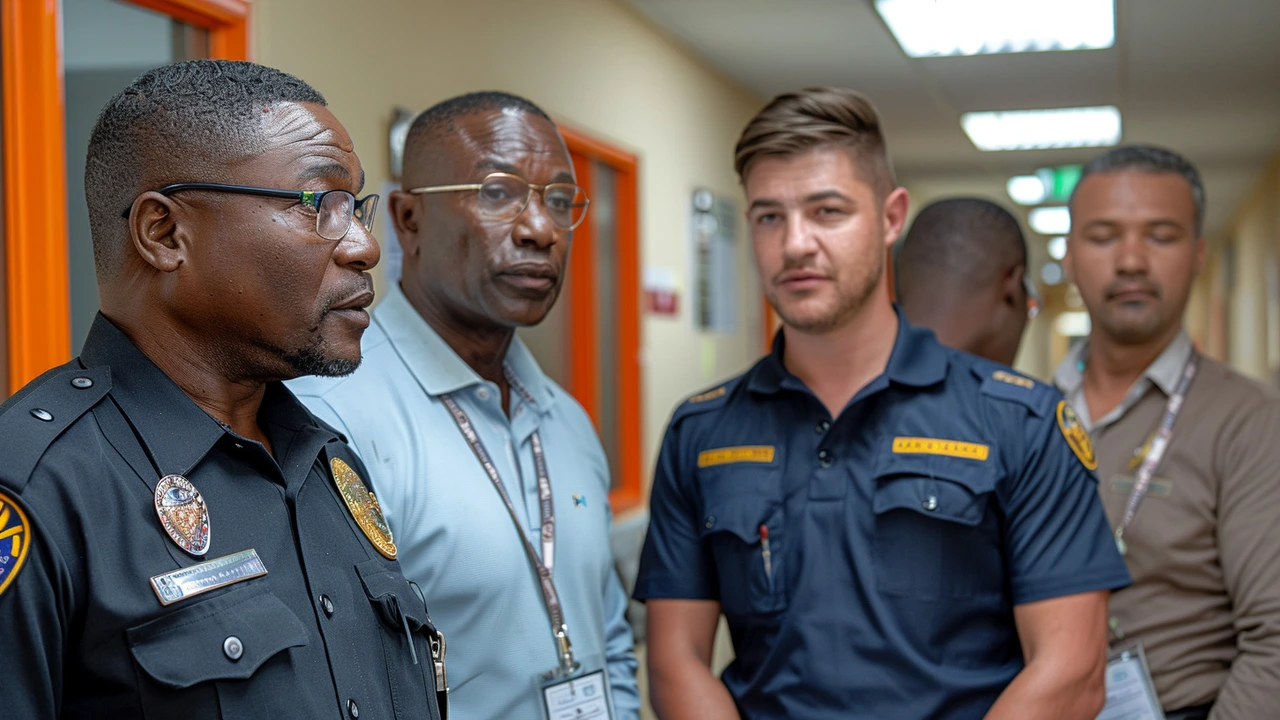
The Stakes of the General Elections
As South Africans prepare to head to the polls on Wednesday, the stakes have never been higher. Approximately 27 million registered voters will cast their ballots to elect lawmakers for the 400-member Parliament and provincial legislatures. This election is largely anticipated to be one of the most hotly contested in the country’s democratic history, with a staggering 70 registered political parties, including independent candidates, vying for power.
For nearly three decades, the ANC has maintained its dominance, but this year it faces substantial challenges from a diverse array of opposition parties. The Democratic Alliance (DA), Economic Freedom Fighters (EFF), Inkatha Freedom Party (IFP), ActionSA, and of course, the MKP itself are all determined to disrupt the status quo and seize a share of political control.
Pervasive Political Tension
The pre-election atmosphere is thick with tension, as every move and statement is scrutinized by both the public and the media. Allegations of vote-rigging have injected a new layer of complexity into the race, amplifying doubts and fears about the integrity of the electoral process. The MKP is not alone in its apprehensions; other opposition parties have echoed similar sentiments, urging the IEC to maintain transparency and adhere strictly to democratic norms.
Local and International Reactions
International observers are also closely monitoring the situation, mindful of South Africa's pivotal role in regional stability and democratic governance in Africa. Any hint of electoral malpractice could have far-reaching implications, not just for the country itself but for the continent at large. Foreign governments and international bodies are expected to weigh in more assertively if the allegations persist, potentially leading to diplomatic tensions.
The Path Forward
The days leading up to the election are critical. The IEC faces the enormous task of restoring faith in the electoral process amidst swirling accusations. Clear communication, transparent practices, and rigorous security measures are essential to quell the growing mistrust. For the voters, the election represents not just the choice of leadership but also a test of the resilience and integrity of South Africa's democratic institutions.
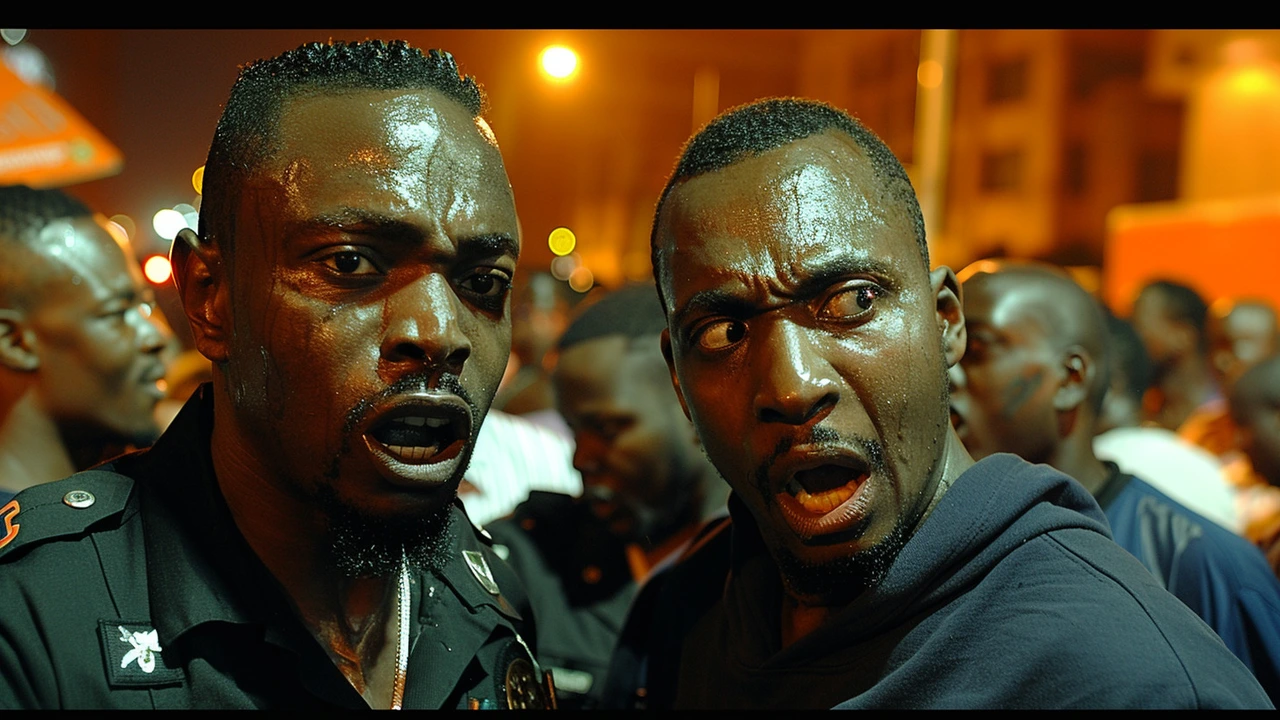
Conclusion
As the general elections approach, the shadow of alleged vote-rigging looms large over South Africa. The MKP's claims highlight the persistent challenges faced by democracies worldwide in ensuring free and fair elections. With a multitude of political parties and independent candidates in the race, the outcome remains uncertain. However, one thing is clear: the events of the coming days will significantly shape the future political landscape of South Africa.
The eyes of the nation, and indeed the world, are on South Africa as it navigates this crucial democratic exercise. For the IEC, the imperative is clear – to uphold the sanctity of the electoral process and address the concerns of all stakeholders to ensure a credible outcome accepted by all.
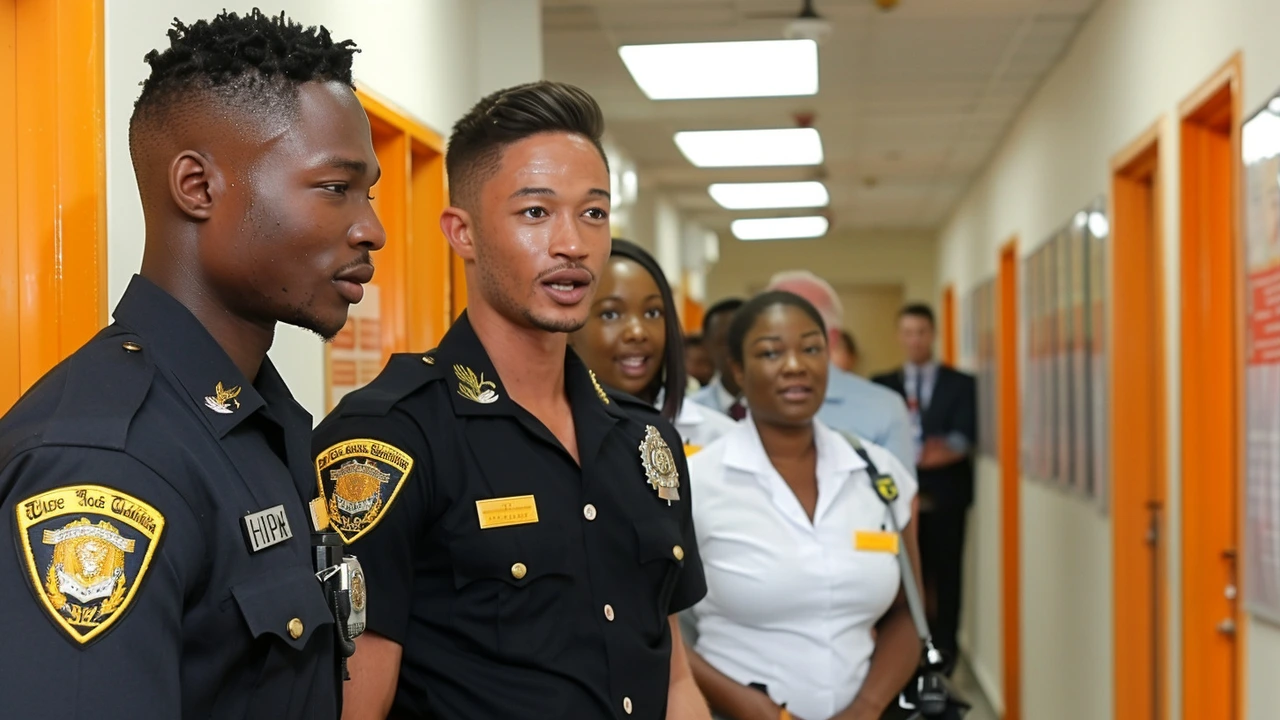
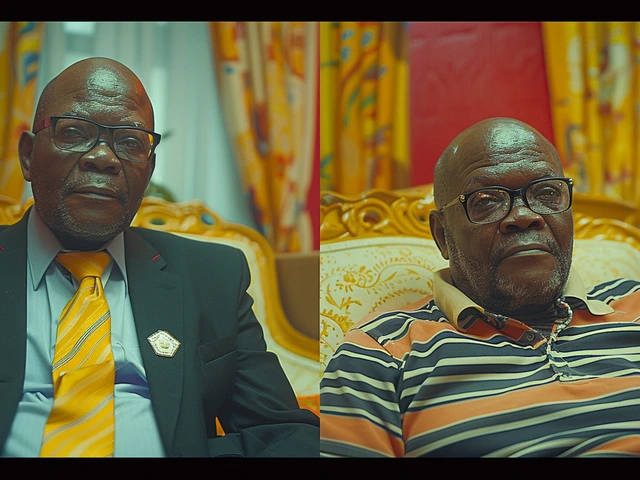
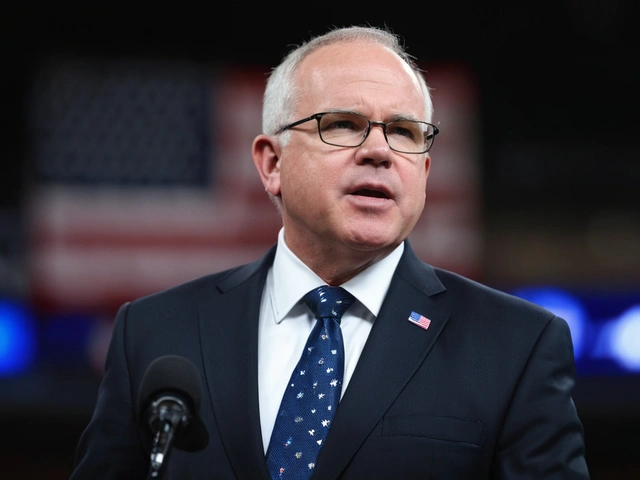


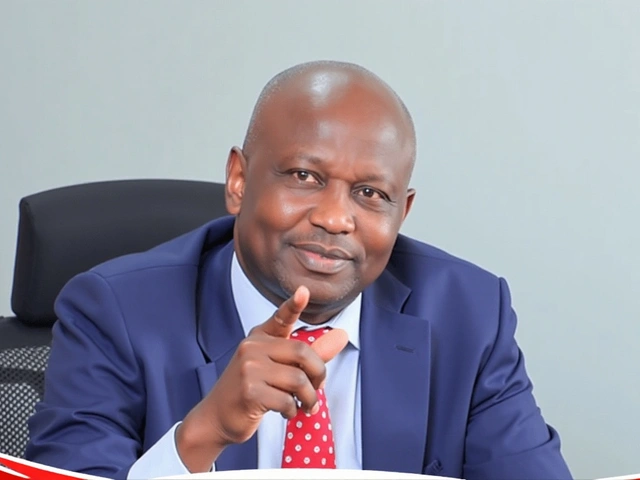

Posts Comments
Elizabeth Alfonso Prieto May 29, 2024 AT 17:21
This is just disgusting. They're literally stealing our democracy right in front of our eyes and no one's doing anything?! I saw those videos-those ballot boxes were being moved like they were smuggling cocaine. How is this acceptable??
Someone needs to call the UN. Or the ICC. Or both. This isn't politics, this is a coup dressed in paperwork.
Harry Adams May 29, 2024 AT 18:55
The IEC’s response is, predictably, a masterclass in institutional obfuscation. One must question the epistemic authority of a body that conflates logistical protocol with democratic legitimacy. The SAPS escort? A performative spectacle designed to mollify the proletariat. The real issue is structural: the IEC has become a captive apparatus of the ANC’s hegemonic machinery.
Kieran Scott May 30, 2024 AT 20:03
Let’s be real-this entire narrative is a distraction. The MKP is a fringe party with zero governing experience. They’re panicking because they know they’re going to lose. The IEC has over 30 years of audit trails, blockchain-backed voter logs, and international observers. You think a couple of blurry videos from KwaZulu-Natal are going to derail a system designed to survive coups, not just bad PR?
Joshua Gucilatar May 30, 2024 AT 21:09
You people are missing the forest for the trees. The real scandal isn’t ballot boxes-it’s the fact that the IEC allowed a foreign diplomat to meet with officials in the first place. That’s not just a breach of protocol, that’s a violation of sovereign electoral autonomy. The US Ambassador doesn’t get a backstage pass to our democracy. This isn’t about fraud-it’s about influence peddling disguised as diplomacy.
jesse pinlac May 31, 2024 AT 01:42
I find it profoundly troubling that so many are willing to accept the IEC’s word without independent verification. The commission has a documented history of opaque decision-making. If they truly had nothing to hide, they’d open the storage facilities to live-streamed audits with global media access. The fact they haven’t? That’s the real red flag.
Jess Bryan June 1, 2024 AT 09:30
They’re not just rigging votes-they’re rewriting history. The US Ambassador meeting? That was a signal. The ballots being moved? They’re being swapped. The SAPS? They’re the enforcers. This isn’t an election. It’s a staged play where the ANC has already won. And the world is just watching because they don’t want to admit Africa can’t handle democracy.
Ronda Onstad June 2, 2024 AT 01:55
I just want to say-this is why we need calm, not chaos. The stakes are high, yes, but panic won’t fix anything. The IEC might be flawed, but they’re still the only institution we have right now. Instead of screaming about fraud, maybe we should be pushing for independent observers, volunteer poll watchers, and transparency livestreams. Change doesn’t come from rage-it comes from organized, persistent pressure.
And hey-if you’re reading this, go sign up to be a poll watcher. It’s boring, but it’s the most powerful thing you can do.
Steven Rodriguez June 3, 2024 AT 22:21
You think this is bad? Wait till you see what happens after the election. The IEC will declare a winner, the ANC will claim victory, and then the MKP will cry foul-and the whole world will watch as South Africa descends into chaos. This isn’t about democracy. It’s about power. And power doesn’t care about facts. It cares about control. And right now, the ANC has the guns, the bureaucracy, and the silence of the West. You think they’re scared of a few videos? They’re laughing.
Zara Lawrence June 4, 2024 AT 05:21
I must insist: the IEC’s claim that these are ‘routine logistical operations’ is patently absurd. The presence of SAPS personnel does not equate to transparency. Furthermore, the timing of the US Ambassador’s visit-two weeks before the election-is not coincidental. It is a brazen act of interference. I urge the Commonwealth and the AU to invoke Article 3 of the Lomé Convention immediately.
Ashley Hasselman June 5, 2024 AT 20:49
Oh look, another ‘election crisis’ where the losers are too lazy to win and too scared to admit they’re unpopular. The MKP got 2% in the last poll. Now they’re pretending they’re being robbed? Maybe try campaigning harder instead of crying into your phone camera.
Kelly Ellzey June 6, 2024 AT 13:28
I know it feels scary… but we’ve been through this before. Every election, someone says ‘the system is rigged.’ And every time, the people show up. They wait in line for hours. They bring their kids. They hold signs. They vote. And somehow, democracy still works.
Maybe the IEC is messy. Maybe there are glitches. But if you stop believing in the system, you give the bad guys what they want. So please-don’t give up. Just show up. Bring a friend. Bring snacks. And vote like your future depends on it… because it does.
maggie barnes June 8, 2024 AT 00:40
I saw the video. The boxes were labeled ‘SPECIAL VOTING-KZN.’ That’s not rigging, that’s people who can’t get to the polls-disabled, elderly, rural. You’re not seeing fraud, you’re seeing a system trying to work for people who need help. Stop turning every bureaucratic procedure into a conspiracy. You’re not a detective. You’re just mad you’re losing.
Lewis Hardy June 8, 2024 AT 08:04
I don’t trust the IEC, but I also don’t trust the MKP. They’re just another party with a charismatic leader and zero policy depth. The real problem is that South Africa’s democracy has become a spectacle. Everyone’s screaming. No one’s listening. Maybe the solution isn’t more oversight-it’s less politics. Less parties. Less noise. More substance.
Prakash.s Peter June 9, 2024 AT 18:05
The IEC is not corrupt. The ANC is not stealing votes. The MKP is a political experiment that failed. The real issue? The youth are apathetic. The middle class is fleeing. The economy is collapsing. And you’re all arguing over cardboard boxes. Wake up. The election is a distraction from the real crisis: South Africa is dying of neglect, not fraud.
ria ariyani June 10, 2024 AT 13:07
I’m not saying it’s rigged… but I DIDN’T EVEN KNOW WE HAD 70 PARTIES. WHO EVEN ARE THESE PEOPLE?? And why is the US ambassador here?? WHY IS NO ONE TALKING ABOUT THIS?? I’m literally crying. This is like a Netflix documentary but REAL. Someone call the media. I need a podcast. I need a TikTok trend. I NEED A MOVIE.
Write a comment